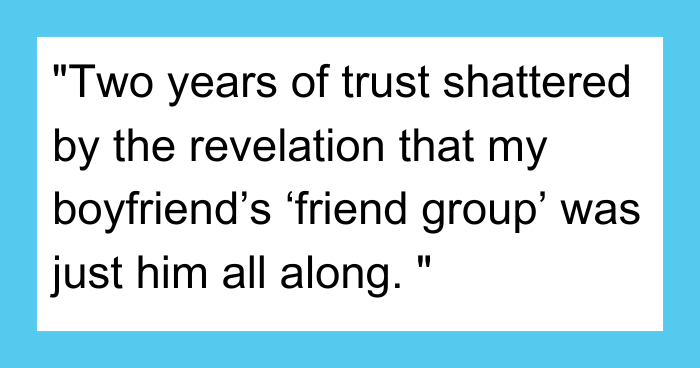Is Deception in Online Relationships a Dealbreaker? Unpacking a Shocking Revelation
Trust is central to our online and offline relationships in the digital age. A woman on Reddit found out that all the members of what he had called a “friend group” her boyfriend introduced her to online two years before were, in fact, the same person — her boyfriend. She had spent two years getting to know what she thought were different people — as local contacts for a group trip to Hawaii. She suspected he was doing something shady and stumbled upon follower bot sites and chat logs, and that discovery was how she confirmed her suspicions.
The day felt chaotic and the emotional fallout immediate. When confronted with the messages, her boyfriend became defensive and accused her of invading his privacy, and she was left feeling betrayed and unsure of what she had done wrong. It begs the question, how far can trust be stretched, what does it mean to be a liar, and where do they stand as a couple moving forward?
A healthy relationship can’t be built on a foundation of lies

This woman’s world was turned upside down when she found out that her boyfriend’s “friends” never existed at all










Exploring the Psychological, Legal, and Ethical Implications
Discovering an imaginary friend group reveals as much a case of normalisable especially the more fun appearing the less normative behaviours of online interpersonal communication. Catfishing, or to create imaginary characters who are generally nowhere near the truth, is used for deceit: for emotional gratification, manipulation, or control. In this scenario, perhaps it’s the boyfriend who is insecure and creates an environment in which he can have control, keep an eye on interactions between his girlfriend and others, and therefore, the option to exert some power.
Psychological Implications
That kind of deception carries an emotional toll. A study analyzing exposure and adaptation to betrayed intimacy, found that individuals who were lied to during online romances are more likely to carry feelings of mistrust that affect their future relationships (in Cyberpsychology, Behavior, and Social Networking). In some cases, this phenomenon may also evoke emotional pain, depression, or even Post-Traumatic Stress Disorder (PTSD).
For the perpetrator, creating multiple personas may signify a deeper problem, like low self-esteem or anxiety about their social performances. Such issues also lead people to craft intricate egos on the internet to cover weaknesses or stay away from the real-life conflict.
Ethical Boundaries and Legal Ramifications
There are massive ethical implications around this behavior. Impersonation and/or pretending to be someone else can truly walk the fine line of legality, in the world of the digital age. Your boyfriend’s actions don’t seem to rise to fraud and identity theft, but could still violate laws against invasion of privacy or terms of service of the platform you learned of the secret from. Also, impersonation for the purpose of manipulation may have legal implications, especially if it involves damage to property or reputation.
For social media accounts like Instagram and Discord, they explicitly prohibit the creation of fake accounts. Breaching these guidelines will get you your social media account suspended or worse, banned. Also, if this resulted in lost money (like lost deposits on the trip to Hawaii), the small claims court could be a source of recovery.
Navigating the Fallout
To earn back trust after such a discovery is difficult, though not inconceivable. This includes being able to engage with therapy, be able to have open communication, and set firm boundaries. But the wronged partner needs to consider if the foundation of the relationship is even still solid. Trust happens again with sustained transparency and reliability, which might be a real challenge when dating someone who cheated on you, according to a study from 2018 by the Gottman Institute.
If you decide to call out your boyfriend even more, keep the attention on his motivations, not a pass on the behavior. Individual or couples counseling may help you decide how to proceed.
Later, the woman replied to several comments and shared some more details about the situation







Your response is appropriate and in relation to the size of the lie that you just uncovered. This is bigger than the fake friend group, it is about trust, respect, and honesty in your relationship. It is important to take care of your emotional well-being amidst this difficult situation.

